Club Timeline

Compiled by club historian Ashley Taylor, the timeline below charts the Cronulla-Sutherland Sharks from inception to present day.
Note: Content will be added throughout the 2025 season.
1966
In 1966, Cronulla-Sutherland played in the NSWRL Second Division. The name change (from Cronulla Caringbah) reflected the junior district it was now representing and drawing players from. Their origins gave them a unique place in the game's history, becoming the first and only premiership team to originate from a junior club – a fact that Cronulla Caringbah are very proud of.
In preparation for elevation to the NSWRL First Division, Cronulla appointed Ken Kearney as head coach for the 1966 season. He was subsequently joined by established first graders Monty Porter, Jack Danzey, Brian Cox and John Hynes.
The side played in a chocolate-coloured jersey with a gold V, the colours said to have been taken from the district's hockey club.
On July 4, 1966, it was decided that Cronulla and Penrith were to be included in the First Division for the 1967 season. The vote for Cronulla's inclusion was unanimous. It had taken the NSWRL 20 years to expand since Parramatta and Manly were admitted in 1947.
HIGHLIGHT
• The club's appointment into the First Division in 1967
1967
In early January 1967, Cronulla players first wore the now-iconic black, white and blue as they posed at training for members of the press. The historic initial design, which was only around for the club's first season, consisted of a sky-blue jersey with a white V and black edging, accompanied by black shorts with white and blue striped socks. The numbers on the back of the jersey were red.
It was reported in the January 1967 edition of Rugby League News that the colours were chosen as they represented the district, however rumour and mystery still remain as to how Cronulla went from wearing chocolate and gold jerseys in 1966 (in the Second Division NSWRFL competition) to black, white and blue the following year.

With Penrith also being admitted to the top level in 1967, some suggest the Panthers were first to register the chocolate-coloured kit with the NSWRFL, forcing the Sharks into a change to avoid a clash. Others say Cronulla beat Penrith to the punch in claiming blue and white, which the Panthers had previously worn.
According to the Sydney Sun at the time, Cronulla's "blue, white and black colours were adopted from the Cronulla Surf Club". There was also some resemblance to the Sutherland Council's colours of blue and white.
The club badge featured a black outline drawing of Captain Cook's ship, the Endeavour. Then-Cronulla treasurer Arthur Winn explained: "We used the Endeavour emblem because of our proximity to Botany Bay into which Captain Cook sailed."
Cronulla played their first pre-season game against fellow newcomers Penrith as a curtain raiser to the Souths vs Balmain match at Redfern Oval. Penrith won 18-12; it was the first Sydney premiership game to be played under the new limited four-tackle rule.
Cronulla's first try scorer in that historic game was Jack Danzey five minutes before half time, resulting in a 7-4 lead, but they couldn't maintain it for a win in their first ever outing (albeit a pre-season game.) The double-header drew a crowd of 18,678.
Cronulla's first competition game was played on April 2, 1967 against the Eastern Suburbs Roosters. The match played at the Sydney Sports Ground was won by Cronulla 11-5.
Cronulla's first home game was played on April 22, 1967 against the Parramatta Eels. Cronulla won the match 23-11 before a crowd of 5,245.
Cronulla only managed to win one more match that season, finishing anchored to the foot of the premiership ladder at season's end.

HIGHLIGHT
• Terry Hughes becoming the club's first representative player when chosen to play in the City Seconds
AWARD WINNERS
• Jeldi Award (Best and Fairest First Grade Player): Terry Hughes
• Most Promising Forward: Alan McRitchie
• Most Improved Player (Alf Clarkson Trophy): John Dennehy

1968
The 1968 season saw the introduction of the 'Sharks' as the club's moniker. The club's first secretary (Chief Executive) Kevin McSweyn credits Ken 'Killer' Kearney with naming Cronulla the Sharks.
The playing strip also changed, with the introduction of a white hoop, bounded by smaller black hoops. The number on the rear of the jersey was black against a white backing.
Kearney was retained as the first-grade coach. Warren Ryan and Noel Thornton shared the job of captain for the first-grade side.

There were some new faces to emerge in this year, names such as John Monie from the Central Coast, Graham Wilson from the Newtown club, Ray Corcoran from Murwillumbah, Noel Thornton from Wests and John Maguire from St George and Paul Taylor an emerging local talent.
Midway through the season the club moved from the inadequate Sutherland Oval to Endeavour Field and celebrated the move with a 10-7 victory over Parramatta.

Cronulla finished the season in 10th position with six wins from 22 matches.
HIGHLIGHTS
• Terry Hughes was the recipient of the inaugural Rothman's Medal for the best and fairest player in the competition, edging out future rugby league Immortal John Raper.

AWARD WINNERS
• Jeldi Award (Best and Fairest First Grade Player): John Monie
• Most Consistent Back: Ray Westwood
• Most Consistent Forward: John 'Bomber' Hynes

1969
On June 29, 1969, British international and future Cronulla Sharks Immortal Tommy Bishop signed with the club, one day before the deadline set down by rugby league rules to allow a player to play that season. Cronulla paid St Helens the $11,000 transfer fee, securing the most important signing in their short history and their first genuine superstar.
Bishop was paid $6000 per season and standard match fees from 1970 to 1973. There were still eight matches remaining in 1969 for which Bishop was paid $300 per match.
The late-season addition of Bishop was, however, not enough for the Sharks to avoid collecting their second wooden spoon in only their third season.


Another future Sharks Immortal made his debut that season, local product Greg Pierce. The Gymea Gorillas junior made his debut as an injury replacement in the Round 5 match against the Penrith Panthers.

At season's end, coach Ken Kearney retired, replaced by Bishop, who was appointed as captain-coach for the 1970 season.
The team finished the season with five wins from 22 matches played.
Success in the lower grades saw the reserve-grade side make the playoffs, bundled out in the semi-finals. The third-grade side finished minor premiers and looked on track to claim the club's first title before losing the final 5-4 against Canterbury.
HIGHLIGHTS
• Signing of British international Tommy Bishop.
AWARD WINNERS
• Jeldi Award (Best and Fairest First Grade Player): John Monie

1970
The 1970 season saw Cronulla establish a strong connection to their new home ground at Endeavour Field, winning seven of the eleven matches played at the ground.
A marked improvement from the season before, Cronulla finished seventh on the premiership ladder, with nine wins from 22 matches.

The season saw considerable improvement of many of the club's players, notably Greg Pierce, John Maguire, Chris Wellman, Paul Taylor, Barry Andrews, Mick Souter and Fred Dennehy among others.

Stylish winger Ray Corcoran was selected to represent NSW, becoming the club's first state representative.
Hooker Ron Turner earned national representation, becoming the club's first player selected for Australia. Turner played in the World Cup final.

HIGHLIGHTS
• Ray Corcoran and Ron Turner's representative selection
AWARD WINNERS
• Jeldi Award (Best and Fairest First Grade Player): Tommy Bishop
• Most Improved: Greg Pierce
• Best Forward: Rod Urquhart
• Best Back: Ray Corcoran
1971
The 1971 season was a campaign of mixed fortunes for the Sharks. The season started with great promise, the side making the final of the Wills Pre-Season competition. Despite a loss to the Dragons in the decider, the early season form suggested the Sharks had the players to feature at the business end of the season.
Unfortunately, the side failed to live up to the pre-season hype, finishing seventh on the premiership ladder with 10 wins and 12 losses.

The loss of inspirational captain-coach Tommy Bishop to a ruptured Achilles tendon midway through the year dealt the side a heavy blow. Injuries to key players – including Ron Turner, Paul Taylor and George Taylforth – further weakened the squad, leaving Cronulla desperately short on experience and leadership.
However, the year was not without its high points. The arrival of English prop Cliff Watson proved a significant moment in the club's history. Initially set to join Canterbury, Watson changed course after a call from his close friend Tommy Bishop. Determined to secure his signature, Club Secretary Arthur Winn and Deputy Chairman Bob Abbott travelled to England to finalise the deal – ensuring Watson's journey led him to the shores of Woolooware Bay.
Watson's debut match for the club however was to be remembered for the all the wrong reasons, the burly prop breaking his jaw against the Penrith Panthers, an injury that would sideline him for six weeks.
Individual achievements also provided moments of celebration. Ray Corcoran set a club record with 17 tries in a single season, while Greg Pierce, Kevin Hogan and Rod Urquhart earned selection for the annual City v Country clash. Meanwhile, John Taper etched his name in Sharks history, becoming the first player to reach 100 games for the club.

HIGHLIGHTS
- Cronulla made their Sydney Cricket Ground match-of-the-day debut, facing defending premiers South Sydney
- Winning the Endeavour Cup (a competition played post-season for teams that finished 5th to 8th on the premiership ladder)
- Talented five-eighth and stand-in captain Kevin Hogan tied with Souths' Denis Pitard in the Sun Herald Best and Fairest Award and was beaten by just one point for the Rothman's Medal


AWARD WINNERS
- Jeldi Award (Best and Fairest First Grade Player): Maurie Raper
- Taren Point Tyre Service Tackling Award: John Maguire
- Best Clubman – Bob Wear
1972
Following a strong finish to the 1971 season, many expected Cronulla to be one of the big improvers in 1972. However, those hopes quickly faded. Club Secretary Arthur Winn summed up the disappointing campaign in the Club's Annual Report, writing:
"The season past is one which I hope will be quickly forgotten by our supporters, as it did nothing for rugby league in the area."

The first-grade side struggled, managing just eight wins from 22 premiership matches and failing to register a victory in all four Wills Pre-Season Cup games – a stark contrast to their impressive showing in the same competition the previous year.

The absence of injured captain-coach Tommy Bishop undoubtedly played a role in the team's poor form. However, his time on the sidelines saw the emergence of a local talent from the Cronulla RSL Club, a tough and determined halfback named Fred Dennehy. Dennehy featured in 19 matches and, by season's end, had earned high praise from Ted Robinson, who described him as "one of the most loyal clubmen of them all".
The other shining light that season was the acquisition of Ken Maddison from the St George Dragons. Lured to the club under the promise of a permanent spot in the second row by coach Tommy Bishop, Maddison's signing was timely as a number of players were looking at retiring at season's end, namely Dave Cooper, who had given great service to the club.

HIGHLIGHTS
- Life Membership was bestowed upon Alf Clarkson, who had been part of the Sharks management since the inter-district days, making him the Sharks first Life Member.
- Five players reached the 100 games mark: Paul Taylor (103), Ray Corcoran (106), John Maguire (111), John Dennehy (113) and Dave Cooper (113)
AWARD WINNERS
- Jeldi Award (Best and Fairest First Grade Player): Maurie Raper
- Taren Point Tyre Service Tackling Award: Maurie Raper
- Best Clubman: Fred Dennehy
- Most Promising Junior: Steve Edmonds

1973
If 1972 was regarded by some as the season to forget, the 1973 season was one that will be long remembered as it concluded with the Cronulla Sharks making their first-ever grand final appearance in the NSWRFL competition.
The long-awaited return of captain-coach Tommy Bishop saw the Sharks finish second on the premiership ladder with 17 wins and 5 losses.


The early signs were good, with the emergence of a future Sharks Immortal in teenage sensation Steve Rogers. The continued improvement of Greg Pierce complemented consistent first-graders such as Ron Turner, Chris Wellman and Warren Fisher. Add to that side the youthfulness of up-and-coming stars Steve Edmonds and Rick Bourke, and the team was building for something very special.

Cronulla's aggressive forward pack, led by Cliff Watson, played a key role in their success, setting the tone for their gritty style of play. The Sharks recorded notable victories throughout the season, including a dominant 18-0 win over big brother the St George Dragons in the preliminary final.
In what is still described today as one of the most brutal grand finals in history against archrivals the Manly-Warringah Sea Eagles, the Sharks fought valiantly but ultimately fell 10-7 in a bruising encounter at the Sydney Cricket Ground.
Despite the grand final heartbreak, the year was filled with milestones, with Ken Maddison, Greg Pierce and Steve Rogers rewarded with selection in the Kangaroos squad for the tour of Great Britain and France.
The first-grade side weren't the only team to qualify for the grand final that season with the Harold Matthews Cup squad, led by Ted Glossop, claiming the honours, defeating the Penrith Panthers 10-5 in the final. The side featured future first-grade captain David Hatch.

HIGHLIGHTS
- The First Grade Grand Final appearance against the Manly Sea Eagles
- Ken Maddison claiming the clubs second Rothman's Medal
- The Harold Matthews Cup team winning the competition
- The selections of Greg Pierce, Steve Rogers and Ken Maddison on the Kangaroo Tour.


AWARD WINNERS
- Finnie Ford Award – Ford Escort: Steve Rogers
- Jeldi Award (Best and Fairest First Grade Player): Tommy Bishop
- Taren Point Tyre Service Tackling Award: John Maguire
- Alf Clarkson Trophy Most Promising Junior: Rick Bourke
1974
The introduction of a new 'ceiling payments system' in which players were forced to play for a maximum of $2000 a season and $200 a game led to Cronulla losing two of their best in Tommy Bishop and Cliff Watson.
The loss of their two biggest and brightest stars had an immediate impact on the Sharks who were unable to record a single win from their first seven matches. By season's end the side had finished 10th on the premiership ladder with nine wins and 13 losses. Under coach Noel Thornton, the team struggled to maintain consistency following their grand final appearance the previous year.
Despite the setbacks, there were standout performances. Ray Corcoran led the team in tries with 10, while Steve Rogers emerged as the top point-scorer with 52 points. The Sharks also participated in the Amco Cup, a mid-week knockout competition, adding another layer to their season.
While the campaign didn't match the highs of 1973, the club continued to build its foundation, with players like Greg Pierce, Ken Maddison and John Maguire taking on leadership roles. The season set the stage for future growth, as Cronulla worked towards re-establishing themselves as a premiership contender.

HIGHLIGHTS
- Ron Turner selected to play for Australia
- Ken Maddison and David Waite selected to play for NSW

AWARD WINNERS
- Finnie Ford Award – Ford Escort: Steve Rogers
- Jeldi Award (Best and Fairest First Grade Player): John Maguire
- Taren Point Tyre Service Tackling Award: John Maguire
- Alf Clarkson Trophy Most Promising Junior: John Purcell

1975
In 1975, Johnny Raper arrived at the Sharks, replacing Noel Thornton as the first-grade coach.

The club was bolstered by the inclusion of Paul Khan from Queensland, as well as Graeme Sams and Greg Mullane. The added depth saw them finish eighth on the premiership ladder with nine wins, one draw and 12 losses. Under the guidance of Raper and captain Greg Pierce, the team showed flashes of promise but struggled for consistency throughout the year.

Despite their mid-table finish, the Sharks remained competitive, scoring 370 points while conceding 375. Steve Rogers was a standout performer, leading the team in points with 156, thanks to his 66 goals. Dave Chamberlin topped the try-scoring list with nine tries.

The added depth flowed down through the grades, resulting in both reserve grade and under 23s playing in the grand final.
The reserve-grade team, featuring some iconic Sharks players such as Rick Bourke, Ray Corcoran, Barry Andrews and Rowland Beckett, lost to the Parramatta Eels 23-13. Despite holding a commanding 13-2 half time lead, the Sharks were unable to close out the match, the Eels running in 19 points in the second half to claim the title.
The under 23s, however, were unstoppable on their way to claiming the club's first senior premiership. A young Mick 'Missile' Mullane was electric at fullback, scoring two tries in the Sharks' 20-8 victory.



HIGHLIGHTS
- The under 23s winning the club's first senior premiership
- The selection of Steve Rogers and Greg Pierce for the Kangaroos
- The reserve-grade side finishing the season as runners up
- Steve Rogers claiming the club's third Rothman's Medal

1976
Under the guidance of coach Johnny Raper, in what would be his final year at the helm, the Sharks showed flashes of brilliance throughout the 1976 season but ultimately fell just short of qualifying for the finals. Despite strong performances and a potent attacking game, inconsistency plagued the side at key moments of the season.
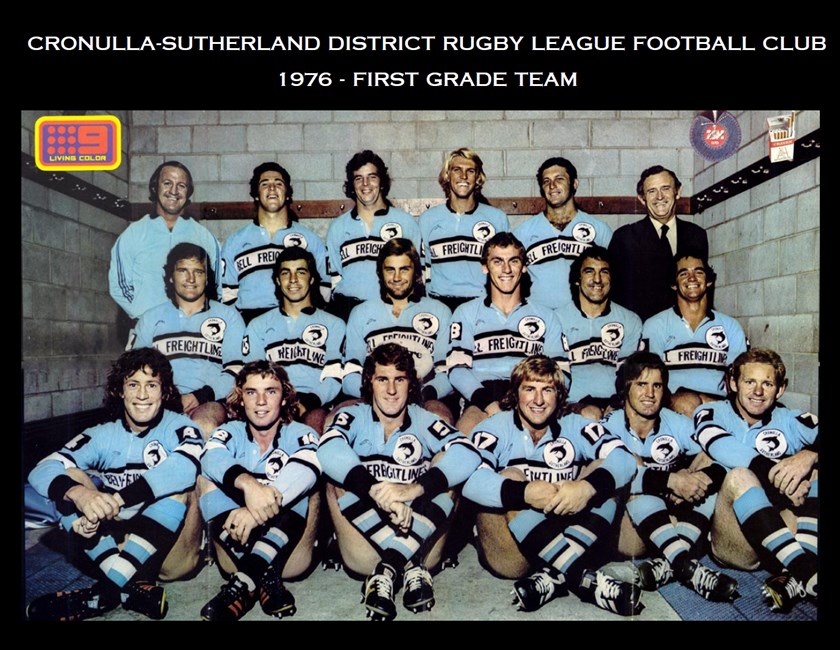
Captain Greg Pierce led from the front with trademark toughness, while Steve Rogers continued to emerge as one of the league's brightest stars. The classy centre's attacking flair and composure under pressure were major highlights for the black, white and blue. The Sharks did however struggle to fill the void left by John Maguire, Ken Maddison, Ron Turner and Ray Corcoran who had all left the club.
It was a season that would leave fans wondering what could have been, as the Sharks hovered around the top five for much of the year but were edged out in the final rounds.
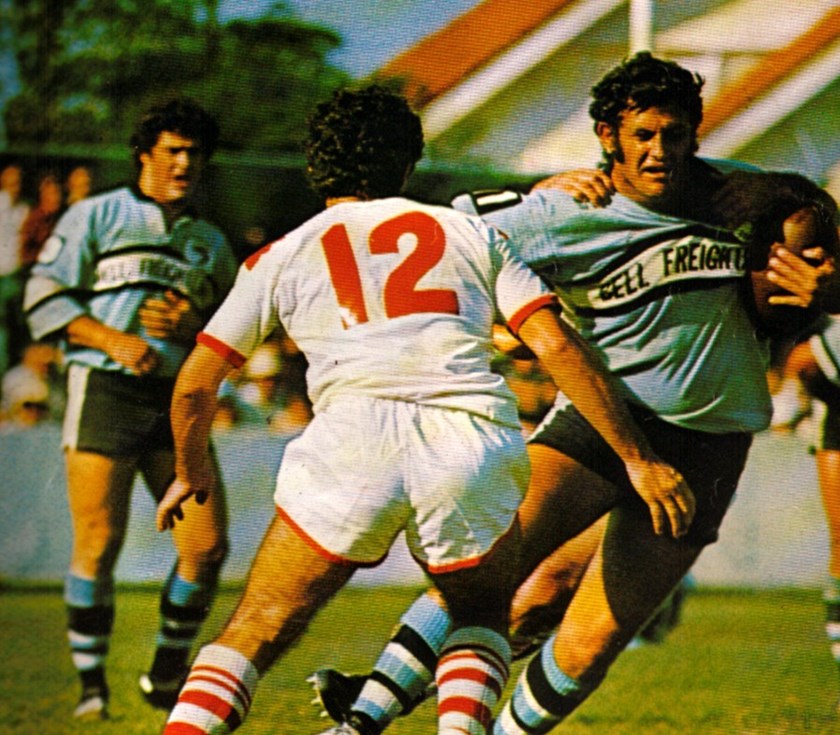
Sponsor and long time supporter of the Sharks Jim Geraghty and his company Straight Talk Tyre People were instrumental in securing the services of English legend Roger Millward from Hull Kingston Rovers. Millward was a breath of fresh air and created a number of highlights, with fans left to ponder where the side would have finished had they had Millward's services for the entire season.
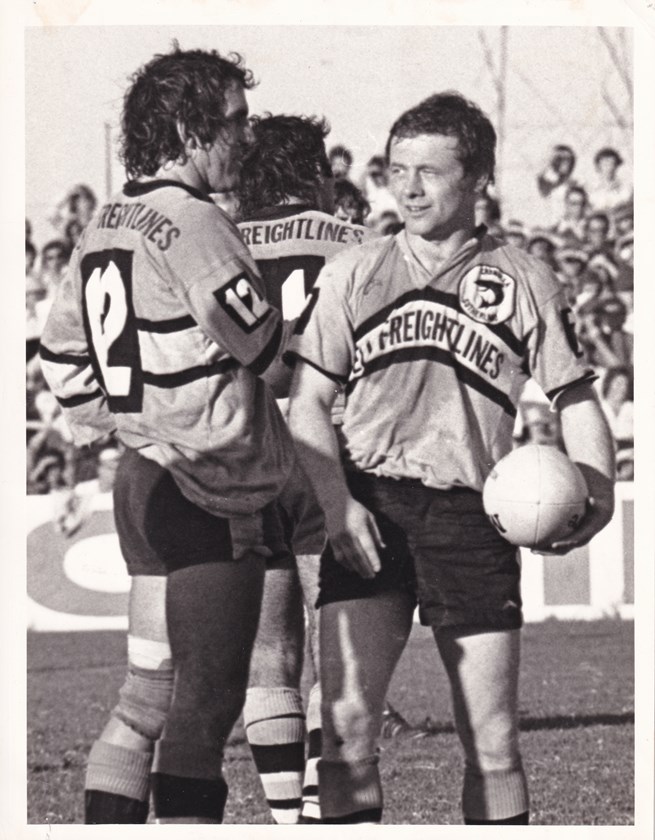
On the back of the under 23s success in 1975, a number of those players were promoted into reserve grade for the 1976 season. Led by captain Graham Sams and featuring future stars such as Mick Mullane, Steve Kneen and Rowland Beckett, the side finished the season as minor premiers, winning the last 14 matches of the season
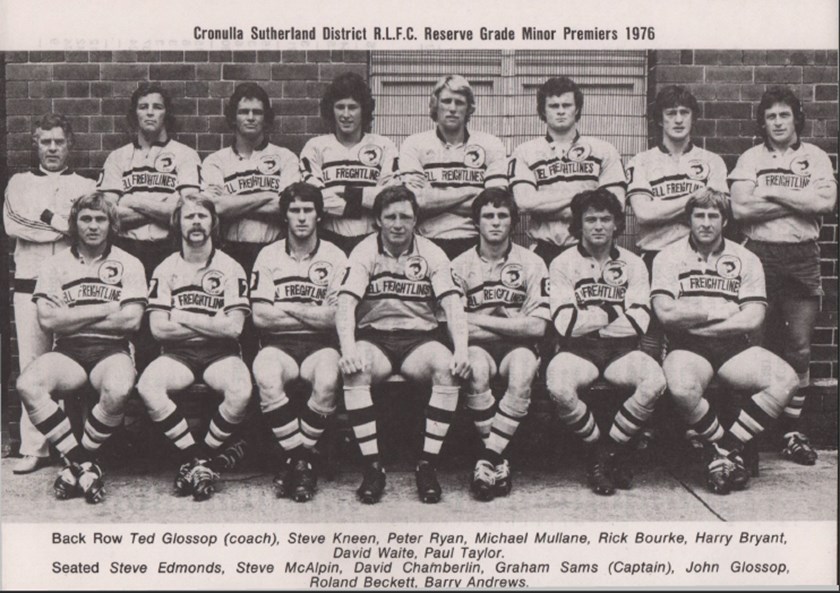
Although beaten in the grand final by the St George Dragons, Ted Glossop's men capped a great season and formed a strong basis that would ultimately result in the strong seasons that followed.
HIGHLIGHTS:
- The first-ever appearance of a sponsor on the front of the jersey – Bell Freightlines
- English legend Roger Millward's 14-match stint produced a number of memorable moments
- Reserve grade finishing the season as minor premiers.
- Fred Dennehy becoming the club's first player to reach 200 games (across all grades)
1977
Following their close call with finals footy in 1976, the Sharks entered the 1977 season full of hope – but it would prove to be another year of near misses and inconsistency. Finishing sixth in the NSWRFL, Cronulla once again found themselves just outside the top five.
With Johnny Raper stepping down at the end of '76, new coach Ted Glossop stepped into the role during a period of transition. While the side showed plenty of spark at times, they struggled to maintain momentum across the season.
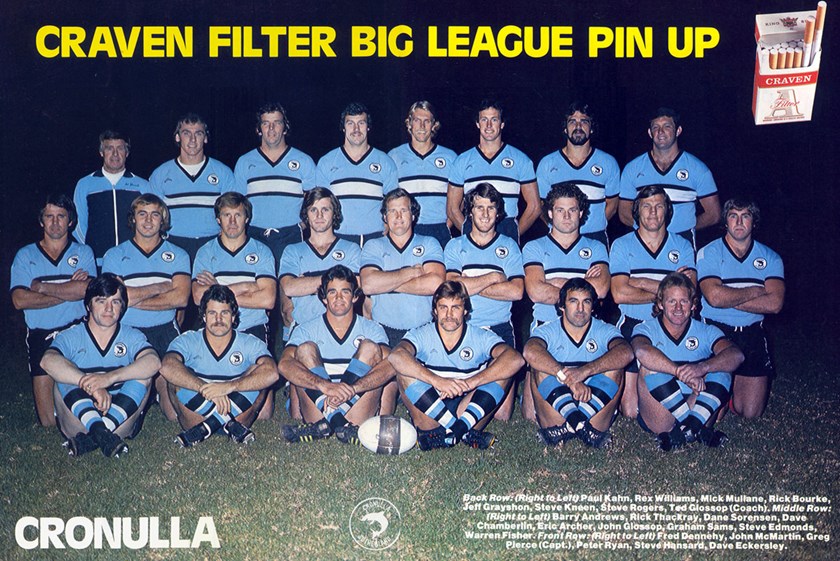
Cronulla notched up 13 wins – a solid return – but the inability to finish off tight matches proved costly. In the end, those fine margins made the difference, as the Sharks fell just short of the finals for the second year running.
One silver lining came in the form of emerging talent Dane Sorensen, whose aggressive running and raw power gave fans a glimpse of a brighter future. The club also introduced several new faces throughout the year, using the season to lay foundations for long-term success.
Though the 1977 campaign will go down as another missed opportunity, the Sharks faithful at Endeavour Field remained loyal, continuing to pack the hill in support of their team in good numbers.
On April 20, 1977, the Sharks opened the doors to their brand new Leagues Club – two years late, but a showpiece of the district, nonetheless.
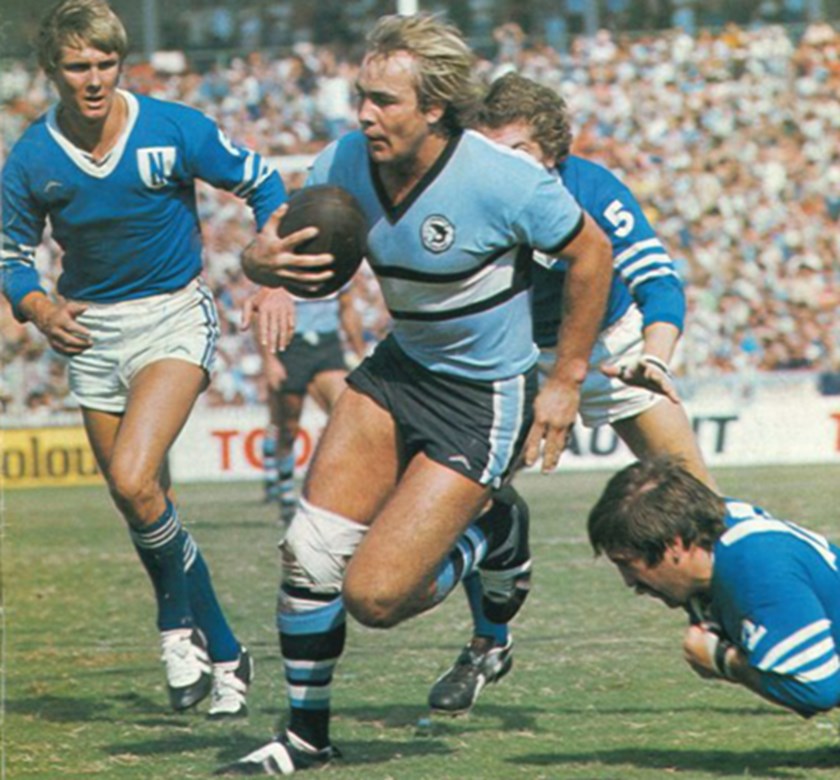
HIGHLIGHTS
- Opening of the new $5 million Leagues Club
- Paul 'Flash' Taylor becoming only the second player to play 200 games with the club
- Three players chosen to play in the World Cup Series: Steve Rogers and Greg Pierce (Australia) and Dane Sorensen (New Zealand)
1978
In 1978, the Sharks edged closer than ever to premiership glory, only to be denied in one of rugby league's most unforgettable grand final sagas.
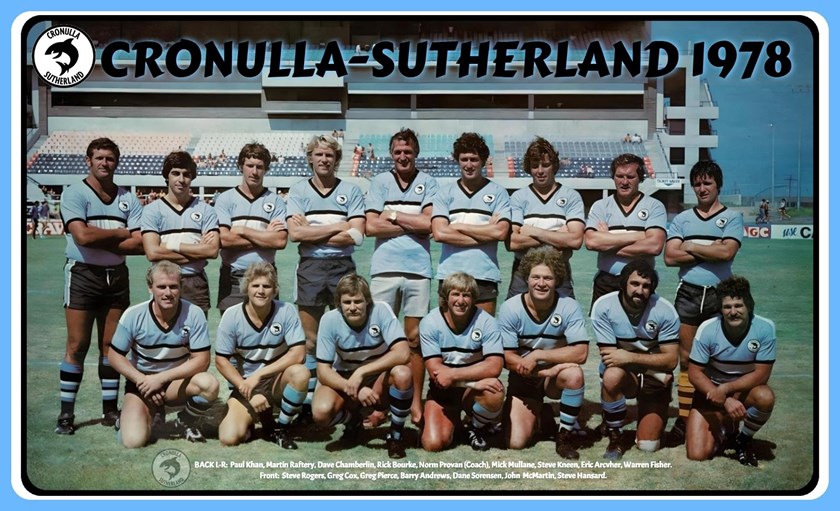
Under the guidance of coach Norm Provan, the Sharks endured a brutal finals series. Despite the physical toll, Cronulla's grit and determination carried them all the way to a grand final showdown with the Manly-Warringah Sea Eagles.
In front of a packed Sydney Cricket Ground, the two sides played out a brutal and emotionally charged 11–11 draw. The match was a war of attrition, with both teams trading big hits and crucial plays in a contest that left players exhausted and fans on edge.
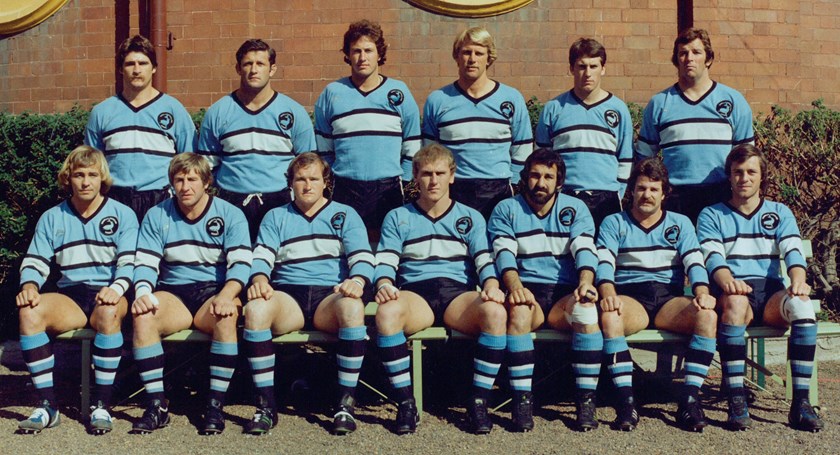
With no extra time or golden point in place, a replay was scheduled for just three days later. It was here that fatigue finally caught up with the Sharks. Despite their courage and the backing of a passionate supporter base, Cronulla were overrun by a more experienced Manly outfit, who claimed the premiership with a 16–0 victory. Cronulla were missing a number of key players for the replay including Greg Pierce (suspended), Dane Sorensen (suspended), Mick Mullane, Barry Andrews, Gary Stares and John McMartin (all injured) that ultimately proved pivotal in their chances of securing the club's maiden title.
The loss was heartbreaking for a side that had shown such resilience, particularly in their gutsy finals win over minor premiers Western Suburbs. Steve Rogers was a standout once again, proving why he was regarded as one of the game's finest talents. Brothers Kurt and Dane Sorensen added bite and muscle to the forward pack, while Greg Pierce, Steve Kneen and Paul Khan lead the way with trademark toughness.
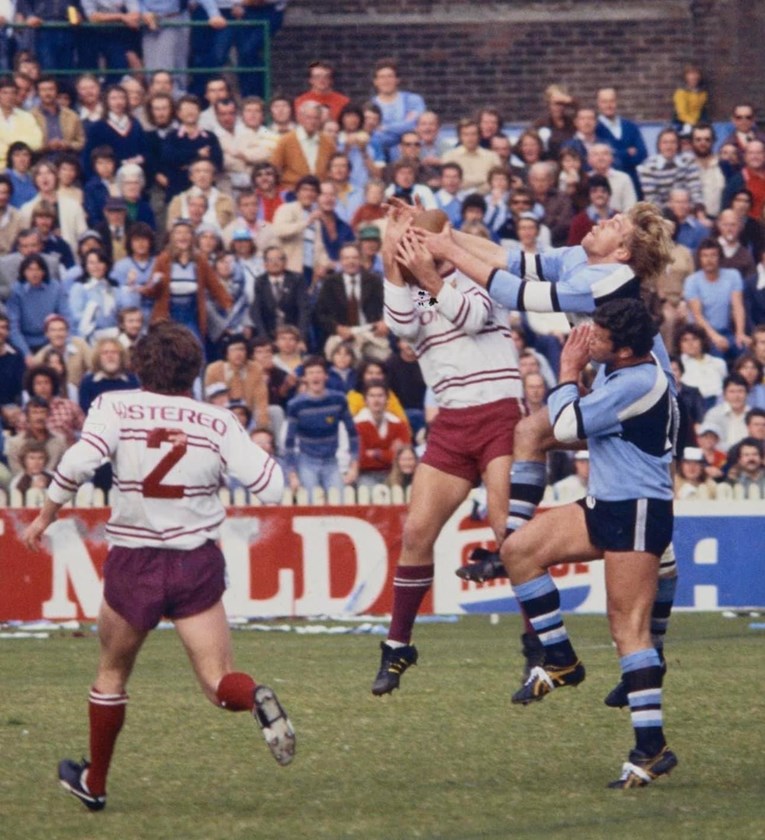
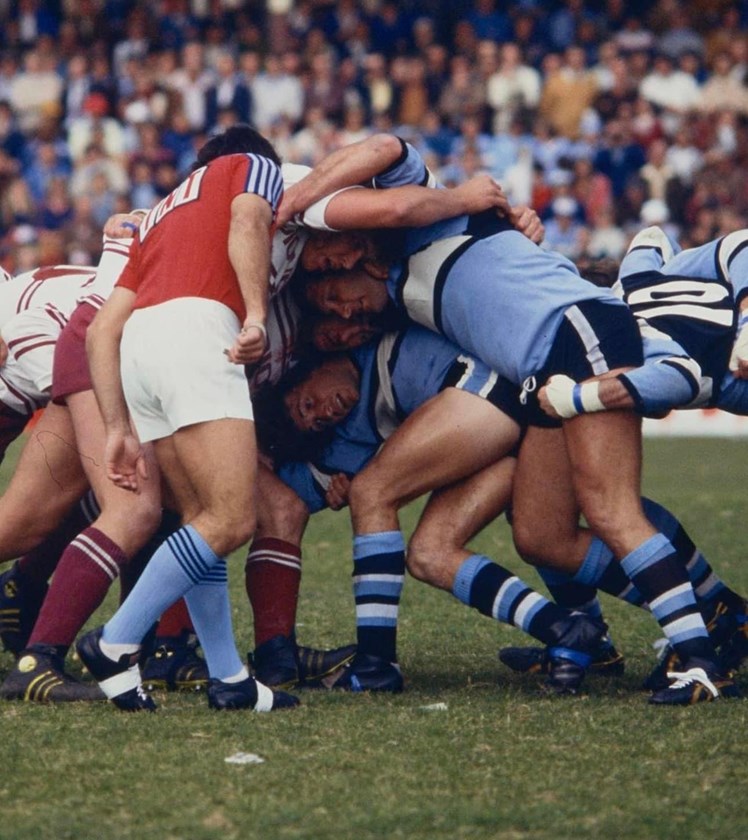
Though the ultimate prize eluded them, the Sharks' 1978 campaign will go down as one of the most courageous in club history. Built on a stoic defensive resolve that saw them finish the regular season with the fewest points conceded, their refusal to back down and their willingness to push through physical and emotional exhaustion won admiration from across the league.
At season's end, the Sharks held their first ever Grand Final Luncheon. Over 300 people packed the Leagues Club auditorium.
HIGHLIGHTS
- Reaching the first-grade grand final for the second time in the club's short history
- The selection of Steve Rogers, Greg Pierce and Steve Kneen on the Kangaroo tour at season's end
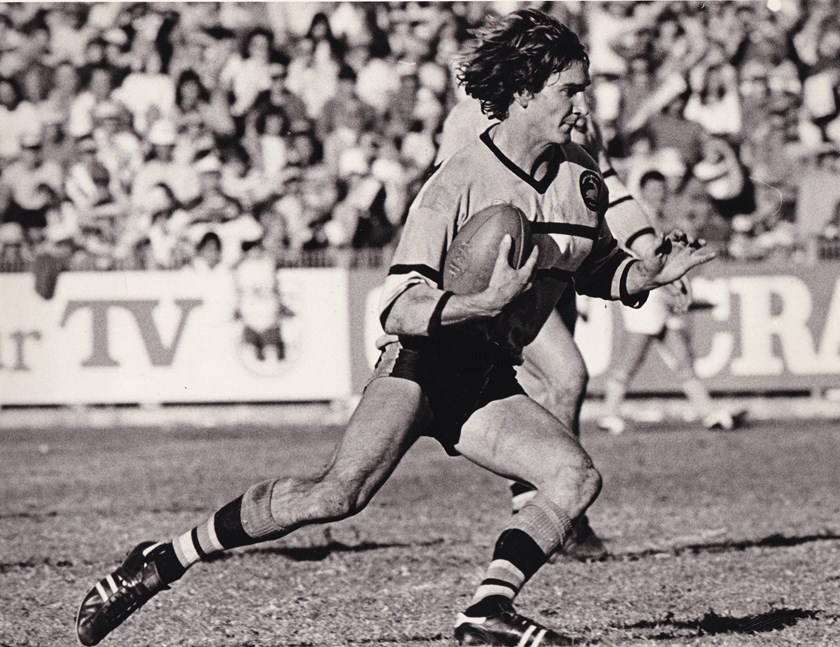
AWARD WINNERS
- Jeldi Award (Best and Fairest First Grade Player): Greg Pierce
- Gemcraft International Award: Steve Rogers
- Straight Talk Tyre Tackling Award: John Maguire: John McMartin
- Alf Clarkson Trophy Most Promising Junior: David Hatch
- Clubman of the Year: John McMartin
1979
The 1979 season was one of progress and promise for the Cronulla-Sutherland Sharks, marked by a strong regular season, their first senior trophy, and the continued rise of a squad that had become one of the league's most formidable. However, despite finishing third on the ladder, Cronulla's premiership push came undone in the finals, with consecutive losses ending their campaign earlier than expected.
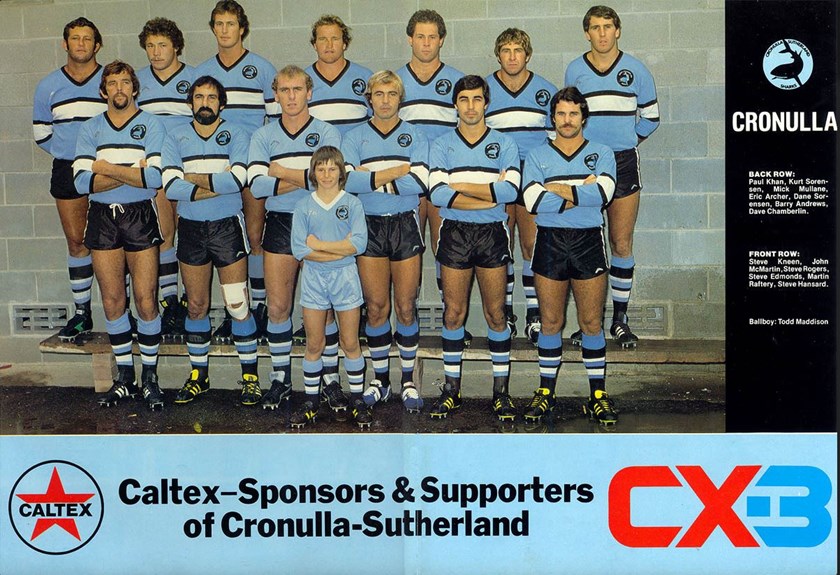
Under the leadership of coach Norm Provan, the Sharks played with structure, discipline and attacking flair. Key players such as Steve Rogers, Greg Pierce and the hard-running Sorensen brothers, Kurt and Dane, were central to their success.
The highlight of the season came mid-year, when Cronulla captured their first piece of silverware by winning the Amco Cup – a midweek knockout competition. After a strong run through the tournament, they defeated Combined Brisbane 22–5 in the final at Leichhardt Oval, with Kurt Sorensen named Player of the Series. The win gave the club and its fans a tangible sign of their growing status in the competition.
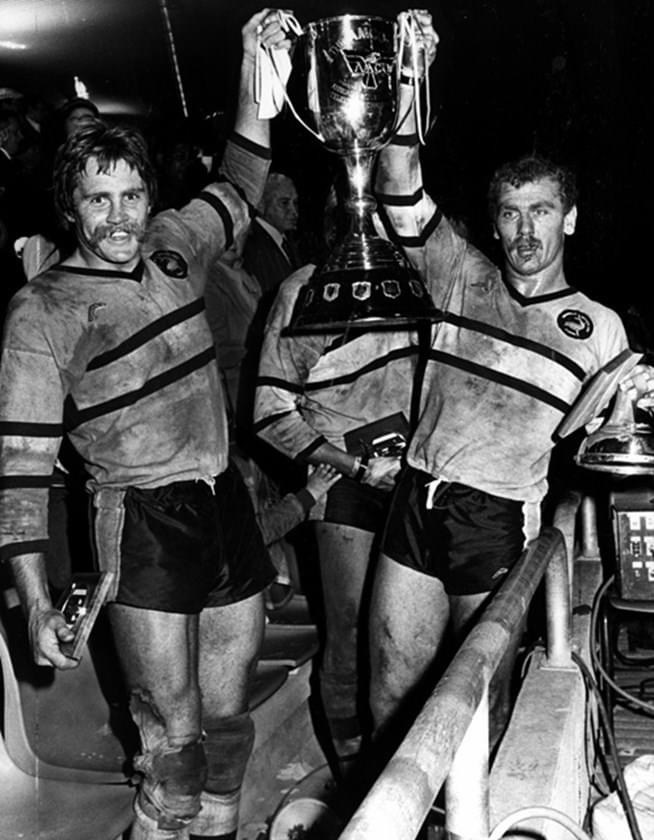
However, the Sharks faltered when it mattered most. In the qualifying final, they were outclassed by Parramatta 24–4, before being eliminated the following week in the minor semi-final, losing 30–15 to Canterbury. Despite high hopes, Cronulla exited the finals in straight sets – a bitter end to an otherwise impressive year.
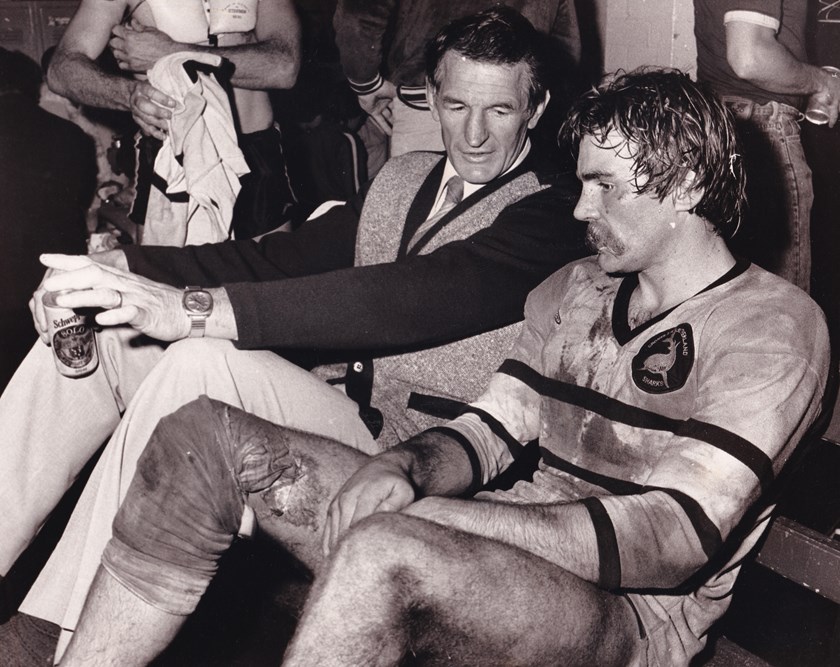
Still, the 1979 season confirmed that the Sharks were no longer simply battlers – they were a team capable of challenging for titles. With a talented core, experienced leadership and a taste of victory in the Amco Cup, the building blocks were firmly in place. While the premiership dream would have to wait, belief around the Shire had never been stronger.
HIGHLIGHTS
- The first-grade side making the finals for consecutive seasons
- Claiming their first major first-grade title – the Amco Cup
AWARD WINNERS
- Jeldi Award (Best and Fairest First Grade Player): Steve Rogers
- Gemcraft International Award: Kurt Sorensen
- Straight Talk Tyre Tackling Award: John McMartin
- Alf Clarkson Trophy Most Promising Junior: Rod Edmonds
1980
The new decade got off to a shaky start for the Cronulla-Sutherland Sharks, who were unable to carry the momentum of their late 1970s success into 1980.
What followed was a frustrating and inconsistent campaign, as the club struggled to find stability during a year of transition. Despite the promise shown in seasons past, the Sharks failed to build on that foundation, ultimately finishing outside the top five and missing out on the finals series.
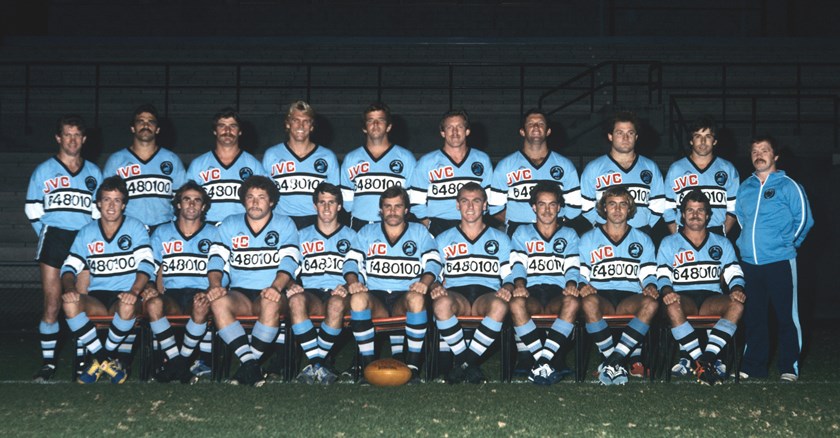
Coach Norm Provan struggled to get any real consistency from his side on both sides of the ball. The Sharks were unable to maintain the attacking potency and defensive resilience that had brought them success in prior seasons.
The team finished the regular season in ninth place, recording a middling win-loss record that reflected a season of ups and downs. Injuries and form fluctuations among key players contributed to a lack of cohesion on the field, while emerging talent found limited opportunity to establish themselves amid the pressure to perform.
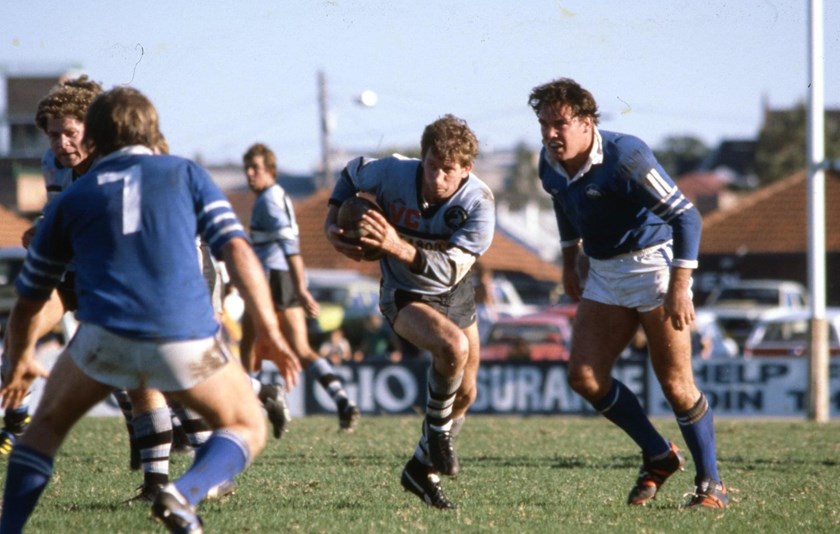
Although the Sharks showed glimpses of their trademark grit and determination, the 1980 season was ultimately viewed as one of regrouping and rebuilding. Fans and analysts alike hoped that with time and strategic adjustments, Cronulla would soon return to genuine premiership contention.
One highlight was the emergence of future Sharks Immortal Gavin Miller who arrived at the club from the Eastern Suburbs Roosters. The centre/five eighth played 13 matches, crossing for five tries.
HIGHLIGHTS
- The arrival of future Sharks Immortal Gavin Miller
AWARD WINNERS
- Jeldi Award (Best and Fairest First Grade Player): Scott Dudman
- Gemcraft International Award: Kurt Sorensen
- Straight Talk Tyre Tackling Award: Scott Dudman and Dane Sorensen
- Alf Clarkson Trophy Most Promising Junior: David Hatch
- Clubman of the Year: John McMartin
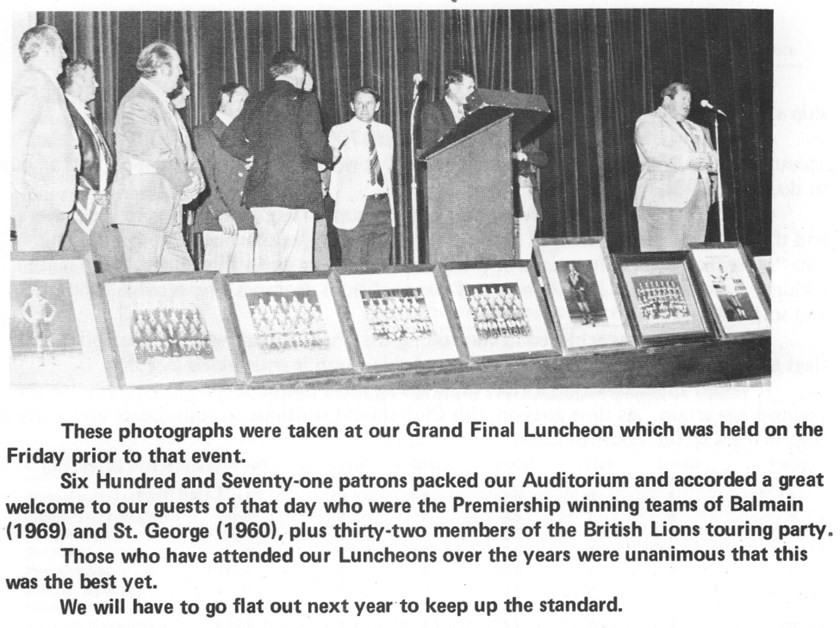
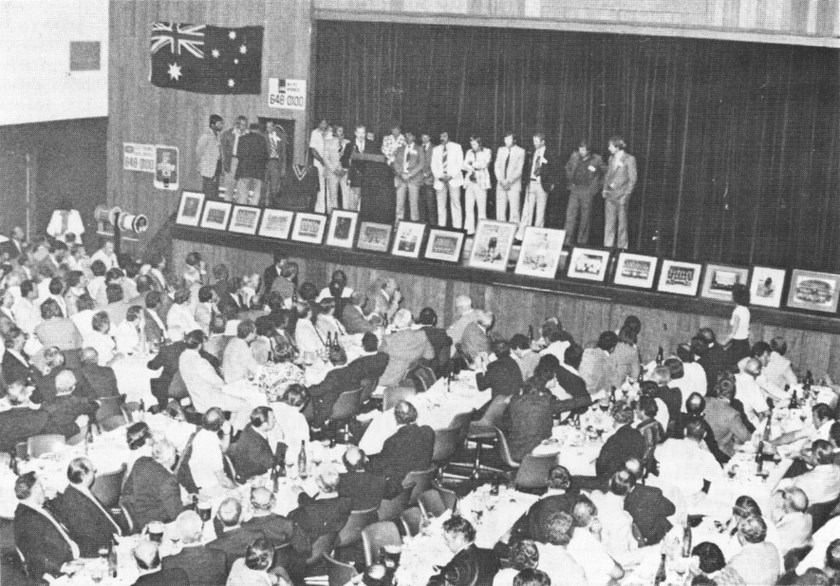

Cronulla-Sutherland Sharks respect and honour the Traditional Custodians of the land and pay our respects to their Elders past, present and future. We acknowledge the stories, traditions and living cultures of Aboriginal and Torres Strait Islander peoples on the lands we meet, gather and play on.




